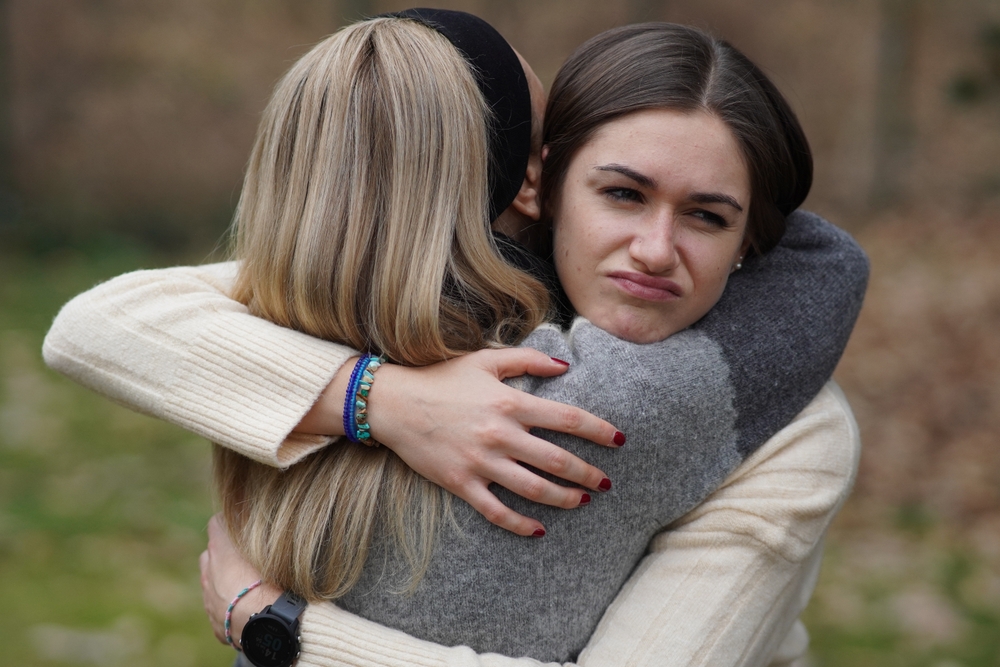Loneliness is a real struggle, and it can be disheartening when you’re actively trying to connect with people but keep hitting dead ends. If you’re starting to feel desperate for a bit of companionship, don’t give up hope just yet. Sometimes, small shifts in how we approach our social interactions can make a world of difference. Here are some things you might be getting wrong — they’re easy enough to improve on!
1. Waiting for Other People to Reach Out

Friendship takes effort! If you always wait for people to invite you, they might assume you’re not interested. Take initiative and send that text or suggest a plan. Don’t be afraid to be the one who makes the first move — you might be surprised how many people are also hoping for someone to break the ice.
2. Being Too Negative

Constantly complaining or focusing on the bad stuff is draining. Try balancing it with some positivity sometimes. (I know, it’s hard!) people are drawn to people who lift their mood. While it’s okay to vent sometimes, make an effort to also share good things happening in your life or things you’re grateful for.
3. Canceling Plans Last Minute

Repeatedly canceling flakes out on people and tells them that they can’t trust or rely on you. If you’re genuinely unable to make it, give as much notice as possible and be proactive about rescheduling. Life happens and plans sometimes change, of course, but try to keep the last-minute cancellations to a minimum and always offer a sincere apology and a new date for getting together.
4. Being Afraid of Rejection

If you never put yourself out there, you’ll never make new friends. It’s normal to feel nervous but don’t let fear stop you from striking up a conversation or joining a new group. Remember, rejection is a normal part of life, and everyone experiences it. The more you put yourself out there, the easier it gets.
5. Only Having Superficial Conversations

If you only stick to small talk, you won’t build real connections. Get a bit more vulnerable, share your interests, and ask meaningful questions. Don’t be afraid to open up a little and share your thoughts and experiences, this is how you form deeper bonds with people.
6. Not Following Up

Met someone cool? Don’t let it fizzle! Follow up with a text or suggest getting coffee. Putting in a bit of effort to nurture connections is the way to turn acquaintances into friends. Exchange numbers, follow them on social media, or even suggest a specific activity you could do together to keep the momentum going.
7. Being Judgmental

Approaching people with preconceived notions pretty much immediately shuts down potential friendships. Stay open-minded — you might be surprised by who you connect with. Give people a chance to show you who they are beyond first impressions. Human beings are complex and many-faceted, and discovering all those different sides is one of the most rewarding things possible!
8. Only Focusing on Yourself

Conversations are a two-way street, you know. Make sure you’re showing interest in other people, asking questions, and actively listening to their responses. Practice being a good listener, make eye contact, and ask follow-up questions to show that you actually give a rip about what they have to say.
9. Giving Up Too Easily

According to Psychology Today, building true friendships takes time and effort. Don’t get discouraged if you don’t click instantly because life often doesn’t work like that. Instead, invest some time and see if the connection grows. Not every interaction will lead to a bestie, but be patient with the process of getting to know new people.
10. Expecting Perfection

Everyone has flaws and makes mistakes. If you hold friends to unrealistic standards, you’ll always be disappointed. Accept people as they are, not as you want them to be. Focus on the positive qualities your friends bring into your life and forgive them when they slip up (which will inevitably happen at some point).
11. Trying to Be Someone You’re Not

People can sense inauthenticity. Embrace the weird, quirky side of yourself – that’s what makes you interesting and will attract genuine friendships. Trying to fit a mold that isn’t true to yourself is exhausting and ultimately unfulfilling. Instead, focus on finding people who appreciate you for who you authentically are.
12. Staying in Your Comfort Zone

Friendships often blossom outside your routine. Join a club, try a new hobby, or volunteer – put yourself in environments where you’ll meet new people. Stepping outside your comfort zone might feel awkward at first, but it’s the only way to expand your social circles and potentially meet lifelong friends. Consider what you’re interested in and find related local groups or activities to get involved with.
13. Prioritizing Online vs. Real World

Social media is great, but it can’t replace face-to-face connection. Prioritize in-person interactions to build deep, meaningful friendships. While online interactions can maintain existing friendships, it’s difficult to truly connect with new people without spending quality time together in the real world. Strike a healthy balance between the two!
14. Clinginess & Codependency

It’s great to love your friends, but smothering them will push them away. Respect their boundaries and give them space to foster their own lives and relationships. Healthy friendships allow for both closeness and individual growth. Learn to set boundaries with your friends and respect their need for time alone or with other loved ones.
15. Unrealistic Expectations

According to Popsugar, movies and TV often portray unrealistic friendships. Don’t expect 24/7 availability or for them to always know the perfect thing to say or do. Focus on building healthy, supportive connections rather than some media-fueled ideal. Real friendships have ups and downs, and expecting anything different sets you up for disappointment. Focus on being a good friend yourself and appreciate the people in your life for who they are.
16. Not Prioritizing Self-Care

It’s hard to be a good friend when you’re exhausted and run down. Take care of yourself physically and mentally so you have the energy and positivity to give to your friendships. Self-care isn’t selfish, it’s necessary. When you’re well-rested and feel good about yourself, you have way more positive energy to bring to your relationships.








